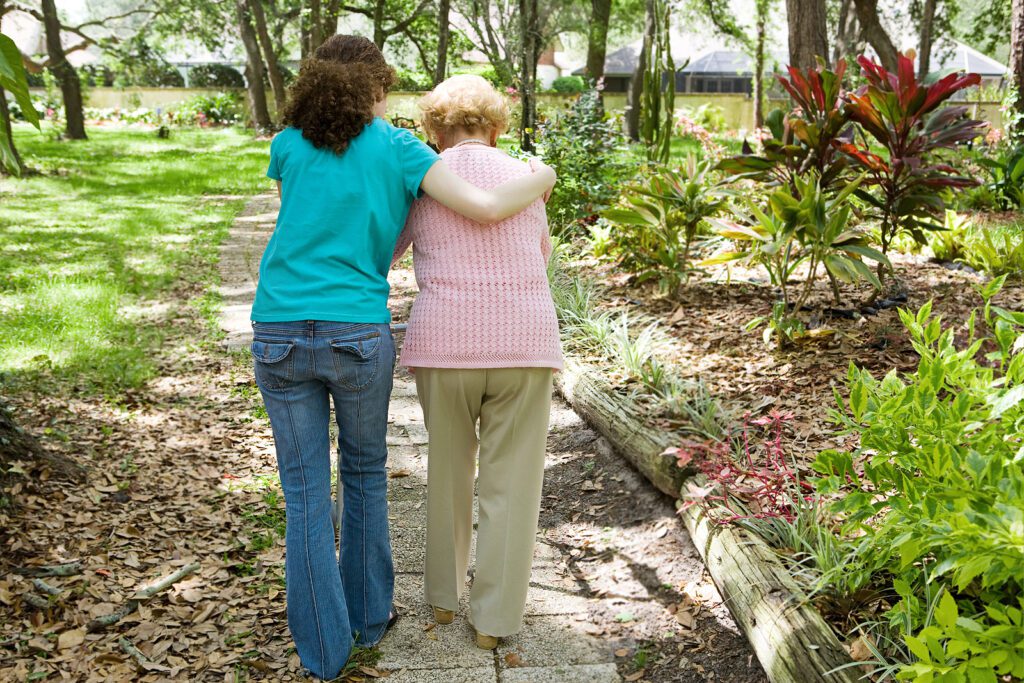From Fear to Freedom: 6 Ways to Support Seniors in Major Life Changes

What would come to mind if I asked you what you felt were the top 3 sources of fear or anxiety that seniors face most often during a significant life transition?
Most people I’ve talked with in my senior downsizing practice say it’s being faced with the uncertainty of what’s ahead. Maybe they have to downsize and are faced with a mountain of lifetime possessions and making those hard decisions on what to let go. For others, it’s coping with the sudden loss of a partner or a nasty fall that ends up requiring major surgery.

Let’s face it, few of us like the uncertainty of change. In many cases, for older adults facing transition, that uncertainty can bring on a new set of challenges. Emotional upheaval, fear, and uncontrolled anxiety can quickly overwhelm and complicate an already painful or unpleasant experience.
If you’re a professional who helps seniors going through transitions, or a family member helping a parent in transitional distress, no doubt you’ve had to pull out your best coping skills. No one wants a family member or client to experience unnecessary distress, so it’s important to understand what’s behind these fears and anxiety so we can do our part to alleviate them.

Relocation Stress Syndrome (RSS)
Let’s start with Relocation Stress Syndrome (RSS). I’ve written several previous blogs about this topic over the years, so I won’t go into great detail about it. But if you are interested in reading more, click here.
In simple terms, RSS is a very real, but relatively unknown, medical diagnosis that many seniors experience during a transition. Anxiety and fear are its hallmarks.
Where It Starts
RSS typically begins when several life factors change simultaneously, like a sudden health change that requires moving to assisted living. It creates layers of stress that grow and overwhelm a person, with serious psychological and physical symptoms soon appearing out of nowhere, such as brain fog, confusion, depression, or social withdrawal.
It’s often misdiagnosed by those who are unaware of RSS’s existence as the beginning of dementia. However, though it mimics some of dementia’s behavioral aspects, it’s short-term and unrelated to dementia. Luckily, the symptoms typically dissipate once the person returns to a calmer rhythm of life.

The Top Three Most Common Fears Seniors Experience During Transition or Change
To ensure a family member or client feels safe, calm, and as confident as possible during transition, it’s important to understand the source behind these primary fears.
Fear of Losing Independence
Many older adults worry about losing their ability to live independently, whether due to declining health, mobility issues, or having to move away from a home they’ve loved for many years but can no longer manage. This fear can be profound as it often involves relying on others for daily activities they can no longer provide for themselves.

Fear of Social Isolation or Social Settings
As friends and family members move away, pass on, or become less accessible, older adults may fear becoming socially isolated, or even the reverse. Many people are shy and uncomfortable with new social settings that communal living requires, making them withdraw further. These losses of social connections can lead to loneliness and are a significant concern during transitions like retirement or relocation.
Fear of Financial Insecurity
Concerns about outliving their savings or not having enough resources to cover medical and living expenses can weigh heavily on older adults, making them feel vulnerable. The uncertainty of financial stability during transitions, such as the loss of critical income from a spouse who has passed, can be a huge source of stress.

How We Can Help: 6 Ways to Support Our Clients or Family
Supporting an older adult through a major transition can be challenging, but there are several effective ways family members or senior service professionals can help to reduce fear and anxiety:
Invite Open Communication
Regularly invite them to discuss their concerns and feelings about the transition. Being patient and an open listener is key. It’s important that they feel heard and respected. Being able to talk about their concerns is also a great outlet for relieving stress.
Encourage and Support Independence
Help them maintain as much independence as possible by making small adjustments, like modifying their home for safety, creating a purging plan together, or assisting with tasks they find difficult. Encourage them to stay involved in decision-making processes regarding their life and care, no matter how small the issue.

Strengthen Social Connections
Facilitate visits, calls, or virtual meetings with friends and family. If they are moving into a retirement community, encourage them to participate in activities or clubs that interest them. Ask retirement community management if they have resident community ambassadors who can help welcome and integrate them into their new home. This can help reduce feelings of isolation and keep them socially active.
Provide Financial Guidance Options
More for family members, this can sometimes be a tricky ask because it can be perceived as questioning their financial independence. But if you can, find a way to offer to assist them in reviewing their finances, creating a budget, or if they are more comfortable, seeking financial advice from a trusted financial advisor. This can help them feel more secure about their financial future and reduce stress related to money.

Ensure Access to Quality Care Options
Sometimes a transition is temporary, as with short-term care after surgery. Exploring options like in-home vs. facility care, keeping track of follow-up doctor appointments after a health event, or helping them find other healthcare options that will allow them to feel in control can alleviate fears related to health and dependency.
Building Better Coping Skills
Each of us has different coping skills that we’ve developed through life. Skills that help us process challenging experiences, each in our own way. Encouraging a client or family member to build new and healthier coping strategies can help them feel more confident and in control of the issues their facing. Who doesn’t want to confidently say “I’ve got this!”?
By providing the right support, encouragement, and tools that our family or clients need to surmount their late-life challenges, we help them navigate life more effectively and reduce the stress that can create syndromes like RSS or other emotional and physical symptoms associated with transition.
Deborah

Interested in starting a senior downsizing service business of your own? Click here for a free 20-minute consult with me to talk about your options.
